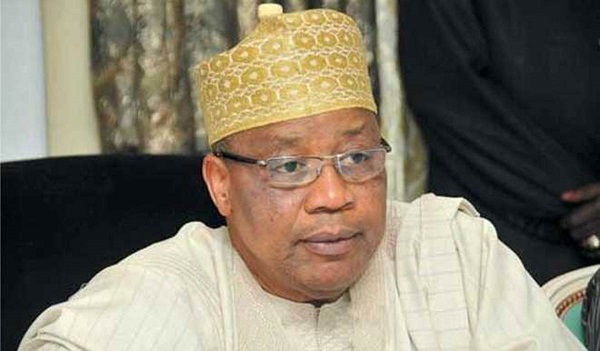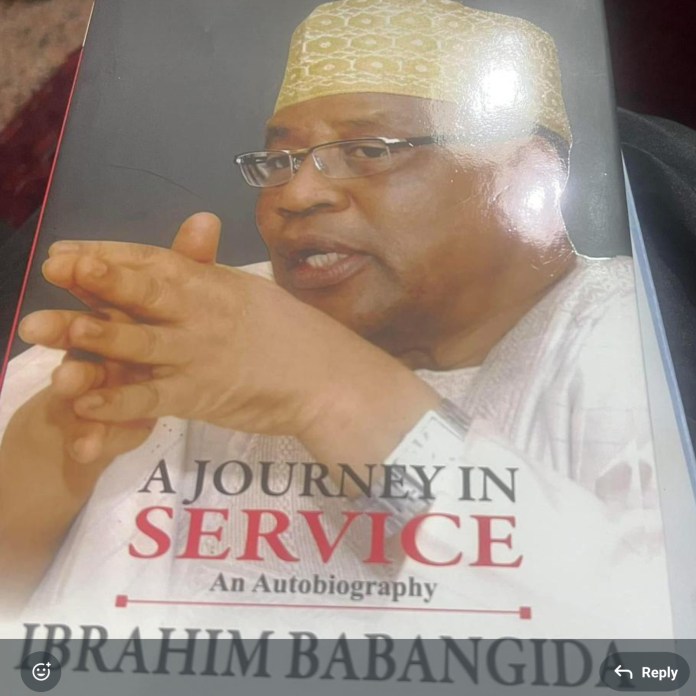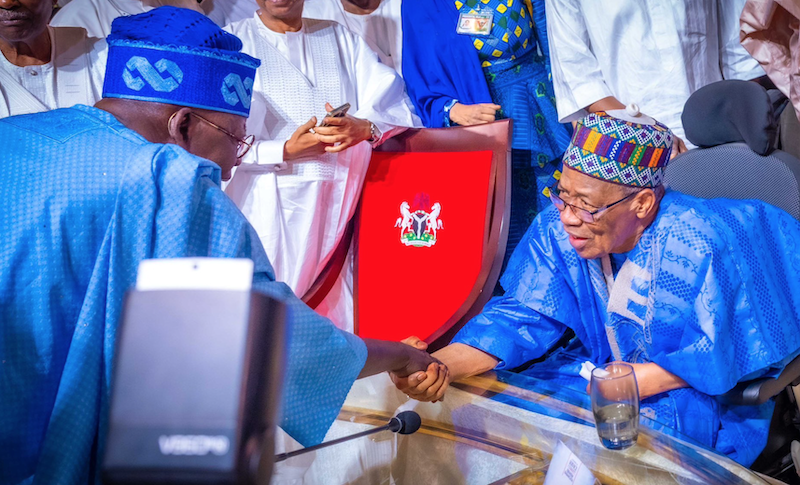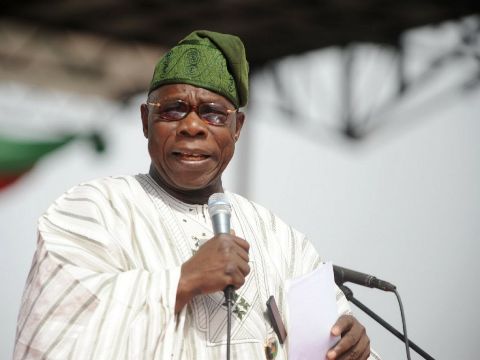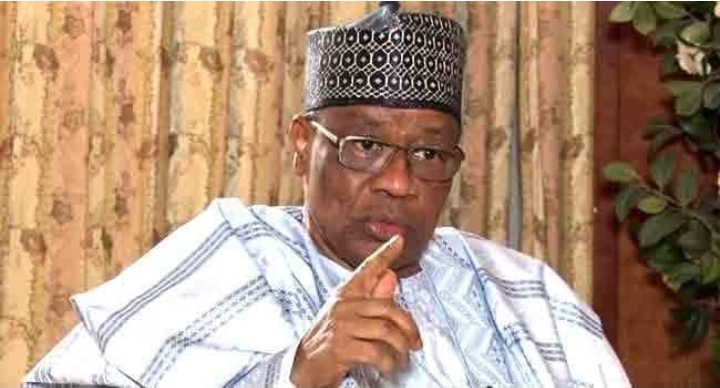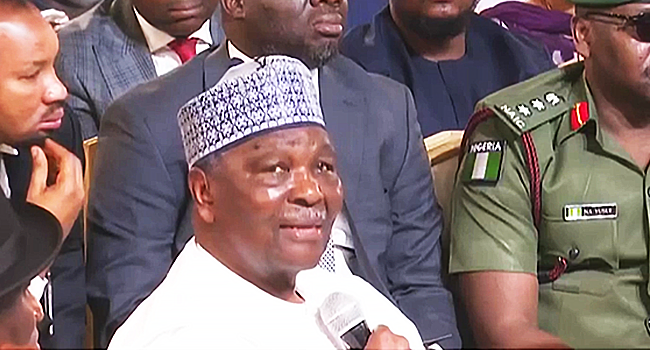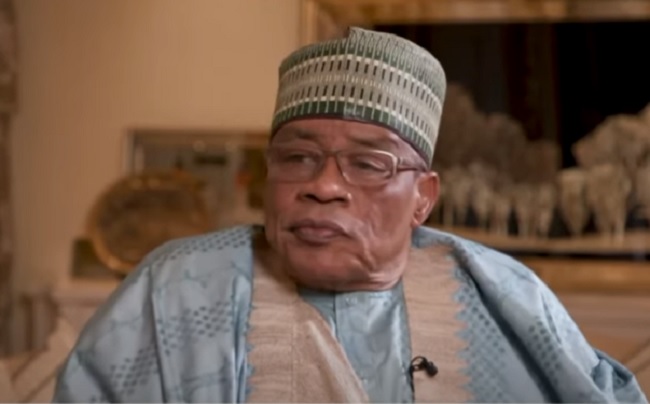LET us admit it, many of us were waiting for General Ibrahim Badamasi Babangida’s book majorly for two issues – 12 June 1993 election and the 19 October 1986 parcel bomb that shredded the torso of journalist Dele Giwa, Editor-in-Chief of Newswatch magazine. He died from it, and Moshood Kasimawo Olawale, MKO Abiola, winner of the June 12 presidential election died in detention 12 years after Dele Giwa.
In his book, Journey in Service, his much-awaited memoirs, which Babangida calls his autobiography, he did not let much out. He was faithful to his nickname, Maradona, executing dribbles that served no better purpose than to maintain the mystique about him being impervious though many know he is imperiled by his loyalty to friends.
The Argentine footballer from whom he picked up the moniker, Maradona, dribbled with a purpose. IBB is different. He prides himself with being machiavellian. His intellectual group got him to explain his actions with his likeness for Niccolo Machiavelli, a 16th-century Italian diplomat, philosopher, and political theorist whose book The Prince was meant to be a realistic guide to new rulers.
Shocking as The Prince was even centuries ago, it was more shocking to modern readers of the book for Babangida and his loyalists to be proud of the fact that their leader was machiavellian. The key principles of Machiavelli are:
a. Consequentialist morality: Actions are judged by the supposed good consequences they bring to society, rather than by ideals. The end, the principle holds, justifies the means.
b. Mask intentions: Leaders should hide their true intentions from followers as well as critics. Isn’t that dictatorship?
c. Avoid inconsistency: Leaders should be consistent in their actions even when they are on the road to doom.
d. Act against mercy: Leaders should act against mercy, faith, humanity, frankness, and religion to preserve the State which in any case is theirs.
e. Shape your own fortune: Leaders should use charisma, cunning, and force to shape their own fortune, rather than relying on luck. In all these the leader thinks of himself first, always.
f. Be feared: Leaders should be dreaded to wade through complex corporate dynamics and destroy those who do not fear them.
g. Manage appearances: Leaders should manage how they appear to others (perception management) and also where they appear for these are among the surprises leaders use to keep their followers in awe of them.
i. Prioritise outcomes: Leaders should prioritise outcomes over other considerations. Nothing, no costs, would be deemed more important than what the leader wants to achieve.
j. Understand adversaries: Leaders should understand their adversaries to navigate complex corporate dynamics. A lot of time and other resources are used to identify enemies and checkmate their moves.
These are the principles IBB was proud to have used in running Nigeria. He was so unpredictable that he no longer surprised.
Babangida wants to keep himself in the limelight in his twilight years. And the crowds that practically shut down Abuja for his book launch were his loyalists who are proof that loyalty is meant to be forever.
Some also earn bragging rights from being seen around Babangida. Others are very grateful for the course which IBB set them on 40 years ago. They were the main cheer leaders on Thursday.
Also in that crowd were those who protested against Babangida’s policies from the Structural Adjustment Programme, SAP, to June 12 or encouraged others to do so. They all spoke glowingly about Babangida.
IBB let the world know in his book that he was pained by Dele Giwa’s death because he was his friend, intelligent and more pained that people were trying to pin the death on the administration. He blamed Giwa’s lawyer, Gani Fawehinmi and Giwa’s colleagues, for hampering investigations into Giwa’s death because they were pointing in one direction, IBB’s administration.
More interesting could be the June 12 election which IBB has just admitted that Abiola won. We knew that long ago. Prof Humphrey Nwosu, Chairman of the National Electoral Commission, told us so 32 years ago. Hundreds of thousands of Nigerians had copies of the result. IBB did not do what he should have done to make the results official, and Abiola, his friend, the President.
IBB staked his innocence through claims that strip him of the acclaims about his bravery, courage, firm control of his administration and the layers of intelligence he built around himself. How could he have lost control of the administration within hours of leaving Abuja for a condolence visit in Katsina?
He just denuded himself after 32 years of hiding behind his fingers.
Most principal characters in the Babangida story are dead. He can tell his story as he pleases. After all, it is his story. He is a great leader, everybody at that event said, particularly those who opposed him.
It was from Babangida that we learnt how powerful Nduka Irabor, Chief Press Secretary to Admiral Augustus Aikhomu, IBB’s Vice-President, was. Babangida said Nduka annulled June 12, reading from a “scrappy” piece of paper that had no presidential imprimatur. Nduka, who Maj-General Muhammadu Buhari jailed under Decree 4 of 1984, with Tunde Thompson, for writing a story Buhari’s administration considered embarrassing, out of jail had acquired enormous powers.
Nduka must have annoyed IBB by the “scrappy” announcement. Babangida retaliated with a national broadcast in which he claimed that the election was compromised, candidates spent over a billion Naira, and there was conflict of interest among some people in government.
Another way of saying it is that Nduka, a non-member of the Armed Forces Ruling Council, AFRC, a mere civilian, had the temerity to announce the annulment. The announcement so infuriated Babangida that he confirmed it with a national broadcast, since he was, President, Commander-in-Chief, and Chairman of AFRC, the highest-decision making body in Nigeria in 1993.
One is also inclined to blame Nduka for developing Abuja, and other otherwise great strides of the administration which Babangida would deny.
With all the rejoinders IBB has issued to what many had thought was “a great job” that he did, less some raised issues, a better title for the book should have been, “It wasn’t me”, all credits to Shaggy and Rik Rok for that 2000 monster release that centred on a man caught cheating his girlfriend repeating, “It wasn’t me” to every evidence.
Finally…
REVEREND Father Jude Muokwe in Anambra State allegedly slapped and flogged a 50-year-old widow, who works in a school the priest superintends. Her offence? She was leading a meeting of teachers to articulate their demand for a pay raise. I have heard defences of the priest. Just a question, is flogging a staff the punishment for holding a meeting? The widow showed her injuries in a viral video on social media. The Catholic Diocese of Awka said it was investigating the incident.
SENATE President Dr. Obong Godswill Akpabio has run into another round of altercations with Senator Natasha Akpoti-Uduaghan, who Akpabio walked out of the Senate during a row over re-allocated sitting arrangements. Akpabio and Akpoti-Uduaghan had a first clash in July 2024 when Akpabio said she spoke as if she was in a night club. Harsh social media reactions forced an apology out of Akpabio. Earlier in the same month, Akpabio had stopped Senator Ireti Kingibe from moving a motion on demolition of buildings in the Federal Capital Territory which is her constituency. Akpabio, in addition, advised Chief Nyesom Wike, FCT Minister to ignore Kingibe. He was later to say the incident was “a miscommunication”.
PA Edwin Clark, elder statesman, a man of great convictions, whose services to Nigeria date back to Mid-Western State, passed on 17 February 2025. All those who hated his guts for fighting for economic, environmental, and social justice for the Niger Delta, now mourn him. Nothing in their mourning suggests that they are not still opposed to the creation of the South South Development Commission for the Niger Delta. Nigerians know how to play it from all sides.
